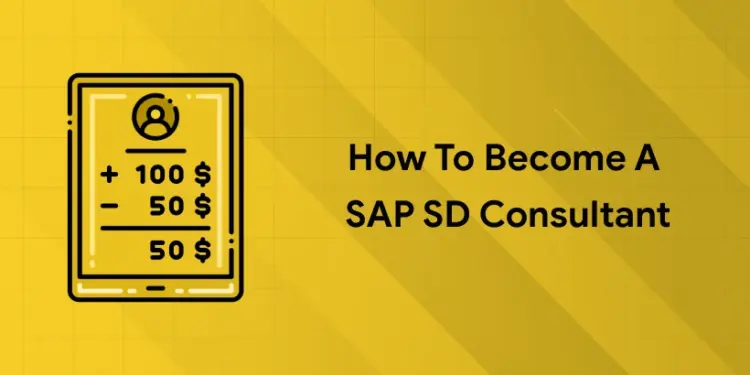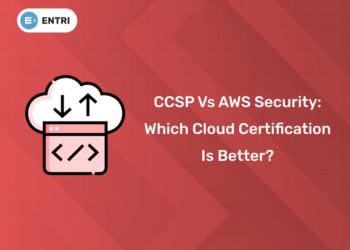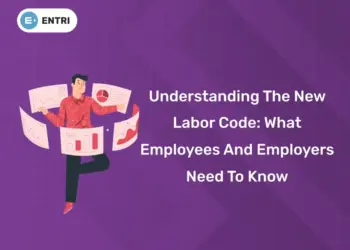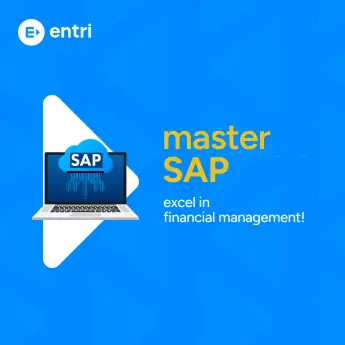Table of Contents
Introduction
In today’s business world, the position of SAP SD (Sales and Distribution) Consultant is becoming more and more important. The need for qualified SAP SD Consultants is increasing as companies seek to optimise their sales processes and boost efficiency. If you’re thinking of becoming an SAP SD Consultant in 2026, this guide will give you all the necessary steps, skills and best practices to thrive in this profession.
Understanding SAP SD
SAP SD, or Sales and Distribution, is a core module of the SAP ERP system that helps manage a company’s sales operations. This module manages functions such as order processing, pricing, billing and customer relations. It is an essential part of enterprise resource planning thanks to its easy interface with other SAP modules, such as Materials Management (MM) and Financial Accounting (FI).
SAP SD is critical for any business today. It is crucial for handling the full sales cycle, from order entry to delivery and billing. SAP SD helps businesses to please customers, operate more efficiently and save money. As more and more companies adopt digital business models, SAP SD Consultants will be crucial for the proper implementation and optimisation of such systems.
Master SAP with Expert-Led Courses
Unlock your potential with our comprehensive SAP courses! Learn essential modules like SAP MM (Materials Management), SAP SD (Sales and Distribution), and SAP FICO (Financial Accounting and Controlling) from industry experts.
Know MoreSkills Required to Become an SAP SD Consultant
-
Strong understanding of SAP SD module functions and scope (sales order processing, pricing, delivery, billing, returns).
-
Knowledge of SD integration with other SAP modules, especially MM and FI.
-
Configuration skills for master data, sales document types, item categories, and pricing procedures.
-
Hands-on experience in end-to-end SD processes, from order entry to delivery and billing.
-
Data management skills, including data migration, data cleansing, and ensuring data integrity in SAP systems.
-
Analytical and critical thinking abilities to understand complex business requirements and design appropriate solutions.
-
Problem-solving skills for identifying root causes and resolving issues during implementation and support.
-
Good understanding of sales and distribution business processes, including order-to-cash, logistics, and customer service flows.
-
Effective verbal and written communication skills for interacting with clients, stakeholders, and technical teams.
-
Project management awareness, including familiarity with Agile or Waterfall methodologies used in SAP implementations.
-
Collaboration and teamwork skills to work with cross-functional teams across finance, logistics, and IT.
-
Basic programming/technical awareness, especially of ABAP, to collaborate with developers and understand custom developments.
-
Commitment to continuous learning, staying current with SAP SD updates and S/4HANA innovations.
Join to learn SAP SD from the Experts! Click for the demo class!
Step-by-step path to becoming a SAP SD Consultant
-
Understand what SAP SD is and why it matters
-
Learn that SAP SD (Sales and Distribution) is a core SAP ERP module managing sales processes like order processing, pricing, billing, and customer relationships.
-
Study how SD integrates with MM (Materials Management) and FI (Financial Accounting), since real projects always involve cross‑module flows.
-
-
Build a relevant educational foundation
-
Pursue or leverage a degree/diploma in Business Administration, Information Technology, Supply Chain Management, or related fields to understand business processes and IT basics.
-
Use this background to connect SAP SD configuration with real sales, logistics, and finance workflows in companies.
-
-
Start structured learning in SAP SD
-
Enrol in SAP SD courses (online or offline) that cover SD basics, configuration, and integration with other modules.
-
Use platforms like Coursera, Udemy, LinkedIn Learning, or specialised SAP training providers to get module-wise training and implementation-oriented case studies.
-
-
Master core SAP SD configuration topics
-
Work through configuration areas such as master data, sales document types, item categories, pricing procedures, and billing settings.
-
Practise configuring scenarios end-to-end (inquiry → quotation → sales order → delivery → billing) in a practice or training system to understand the full sales cycle.
-
-
Develop data management and basic technical understanding
-
Learn data migration and data cleansing concepts to ensure data integrity during implementations.
-
Gain basic awareness of ABAP so you can work with technical teams, customise reports/forms, and troubleshoot issues more effectively.
-
-
Pursue SAP SD certification
-
Aim for the SAP Certified Application Associate – Sales and Distribution, ERP 6.0 EhP7 (or the latest equivalent) to validate your knowledge formally.
-
Use certification study guides, mock exams, and hands-on exercises to prepare, since certification significantly improves credibility with employers.
-
-
Gain practical, real-world project experience
-
Look for internships, trainee roles, or junior positions in companies using SAP, even if the role is support or end‑user focused initially.
-
Volunteer for SAP-related projects, POCs, or internal rollouts to get exposure to real client requirements, testing, and user support.
-
-
Build your professional SAP network
-
Attend SAP conferences, seminars, local meetups, and webinars to connect with consultants, mentors, and hiring managers.
-
Join the SAP Community (online forums and groups) to ask questions, follow discussions, and stay updated on SAP SD trends and solutions.
-
-
Start as a Junior SAP SD Consultant
-
Take up roles like junior consultant or associate, supporting senior consultants in configuration, testing, documentation, and end-user training.
-
Use these early projects to document learnings, build a portfolio of scenarios you’ve implemented, and understand implementation lifecycles.
-
-
Specialize and move into senior roles
-
Over time, specialise in areas such as SD–MM integration, SD–FI integration, or industry-specific scenarios (retail, manufacturing, logistics, etc.).
-
Progress to senior consultant, SAP SD Manager, or Solution Architect roles where you lead projects, manage clients, and design solutions, especially on SAP S/4HANA.
-
-
Continuously update and upskill
-
Follow SAP blogs, news sites, and SAP’s official channels to track new features and best practices.
-
Regularly join advanced trainings, workshops, and new certifications (especially around S/4HANA) to stay aligned with market demand.
-
Educational Pathways
A good education is essential for pursuing a career as an SAP SD Consultant. There’s no mandatory degree, but a background in Business Administration, Information Technology, or Supply Chain Management can be a big advantage. A Business Administration degree teaches you how businesses work, and an IT degree enables you to understand the technical underpinnings of SAP systems.
Getting certified, however, is a milestone in your career. One of them is especially pertinent – SAP Certified Application Associate – Sales and Distribution, ERP 6.0 EhP7. This certification attests to your knowledge and skills in the SAP SD module, boosting your credibility as a consultant.
Another option is to take online courses and training programmes about SAP SD in addition to formal education. Websites such as Coursera, Udemy and LinkedIn Learning provide courses on different aspects of SAP SD, its functions, configuration and implementation methods. Workshops and webinars will keep you abreast of trends and best practices.
Master SAP with Expert-Led Courses
Unlock your potential with our comprehensive SAP courses! Learn essential modules like SAP MM (Materials Management), SAP SD (Sales and Distribution), and SAP FICO (Financial Accounting and Controlling) from industry experts.
Know MoreGaining Practical Experience
In order to develop into a SAP SD Consultant, practical experience is essential. The best way to gain experience is to look for internships or jobs in companies that use SAP software, where you can observe and learn from actual cases.
It’s just as important to build a professional network. Go to industry conferences, SAP seminars, and local meetups to meet people in the field. Networking can produce mentors, job referral,s and knowledge sharing.
You can also improve your learning by joining the SAP Community. Participating in online SAP communities and discussions with other SAP professionals can help you gain insights and stay up to date with SAP SD developments.
Career Progression
Most SAP SD Consultants start off as junior consultants or associates, helping senior consultants with implementations, testing and end-user support. With experience and expertise, you can be promoted to senior consultant, where you will lead projects, manage client relationships and develop strategies.
As you move up the career ladder, you might want to focus on some niche areas of SAP SD. You can, for example, improve your skills by concentrating on SAP SD integration with other modules such as MM and FI. Another avenue is to become an expert in SAP S/4HANA, and as organisations migrate to the new suite, you can find yourself in demand as a consultant. Gaining experience in a particular industry, such as retail or manufacturing, can make you even more valuable.
Staying Updated with Industry Trends
SAP is a fast-moving field, and learning never ends. Promise yourself to keep up to date by reading SAP blogs, enrolling in online courses, and participating in trainings. By keeping abreast of developments in the market and in technology, you will be able to offer your customers improved solutions.
To be informed of new features and improvements, follow SAP news sites, trade publications, and SAP’s own website. Pursuing professional development, such as certification or training courses, will enhance your expertise and equip you for more senior positions.
Join to learn SAP SD from the Experts! Click for the demo class!
Conclusion
To become a successful SAP SD Consultant in 2026, you need a mix of education, hands-on experience, technical skills, and a willingness to keep learning throughout your life. If you adhere to the instructions in this guide, you will acquire a solid foundation in SAP SD and secure a promising career in this dynamic field.
The more companies implement SAP systems to improve sales efficiency, the greater the need for SAP SD Consultants.
Master SAP with Expert-Led Courses
Unlock your potential with our comprehensive SAP courses! Learn essential modules like SAP MM (Materials Management), SAP SD (Sales and Distribution), and SAP FICO (Financial Accounting and Controlling) from industry experts.
Know MoreFrequently Asked Questions
What is the role of an SAP SD Consultant?
An SAP SD Consultant specializes in the Sales and Distribution module of SAP. Their primary responsibilities include configuring the SAP SD system to meet business needs, managing sales processes, handling order management, pricing, billing, and ensuring smooth integration with other modules like MM (Materials Management) and FI (Financial Accounting). They also provide support and training to end-users and help troubleshoot issues related to sales processes.
What educational qualifications do I need to become a SAP SD Consultant?
While there is no specific degree required, a background in Business Administration, Information Technology, or Supply Chain Management can be beneficial. Many consultants also pursue SAP-specific certifications, such as the SAP Certified Application Associate – Sales and Distribution, ERP 6.0 EhP7, which validates their expertise in the SAP SD module.
How important is SAP SD certification?
SAP SD certification is crucial for establishing credibility and demonstrating your knowledge in the field. It enhances your resume and increases your chances of securing a job, as employers often look for certified professionals who can effectively implement and manage SAP SD solutions.
What skills are essential for an SAP SD Consultant?
Key skills for an SAP SD Consultant include technical expertise in SAP SD configuration, strong analytical and problem-solving abilities, and a solid understanding of sales processes. Additionally, excellent communication skills, project management capabilities, and proficiency in data management are vital for successfully navigating the complexities of SAP systems.
How can I gain practical experience in SAP SD?
To gain practical experience, consider pursuing internships or entry-level positions with companies that use SAP. Volunteering for projects, participating in SAP-related workshops, or working on case studies can also provide valuable hands-on experience. Engaging with the SAP Community and networking can lead to mentorship opportunities and further learning.
What are the career advancement opportunities for SAP SD Consultants?
Starting as a junior consultant, you can advance to a senior consultant role, where you will lead projects and manage client relationships. Further advancement can lead to positions such as SAP SD Manager or Solution Architect. Specializing in areas like SAP S/4HANA or industry-specific solutions can also enhance career prospects.
What industries employ SAP SD Consultants?
SAP SD Consultants can find opportunities across various industries, including manufacturing, retail, healthcare, logistics, and finance. Any organization that uses SAP systems and requires robust sales and distribution processes can benefit from the expertise of an SAP SD Consultant.
How do I stay updated with the latest trends in SAP SD?
Staying updated requires a commitment to continuous learning. Subscribing to SAP blogs, attending webinars, participating in online forums, and joining professional organizations can keep you informed about industry trends, new features, and best practices. Engaging in ongoing training and education, including advanced certifications, is also beneficial.
Is programming knowledge necessary for an SAP SD Consultant?
While not mandatory, having basic knowledge of programming languages, particularly ABAP (Advanced Business Application Programming), can be advantageous. This knowledge enables you to customize reports and forms, troubleshoot issues, and better understand the technical aspects of SAP systems.
What is the future outlook for SAP SD Consultants?
The demand for SAP SD Consultants is expected to grow as businesses increasingly rely on SAP systems to streamline their sales processes. As organizations continue to digitalize and adopt new technologies like SAP S/4HANA, skilled consultants who can implement and optimize these solutions will be in high demand, offering promising career prospects in the coming years.










